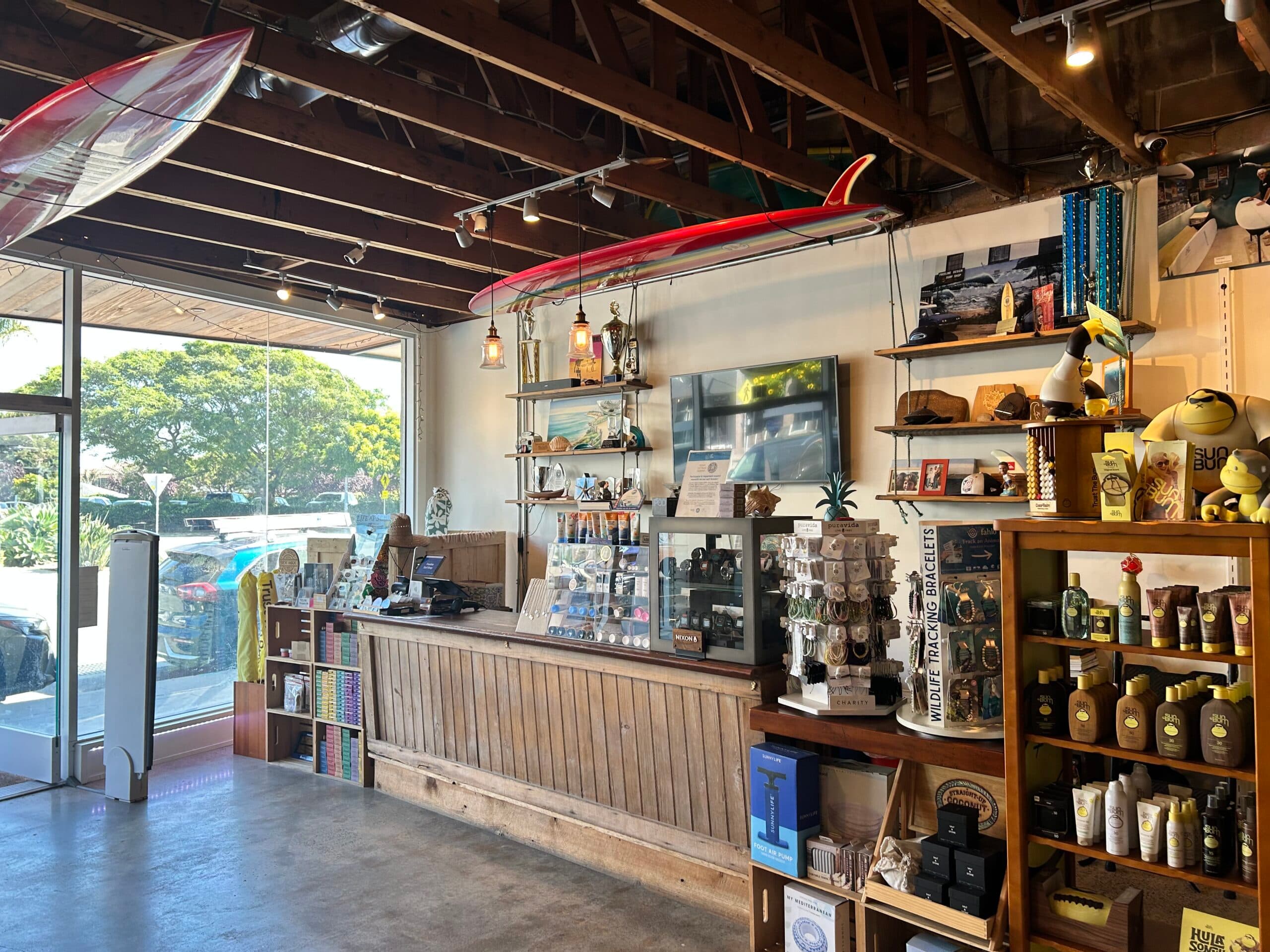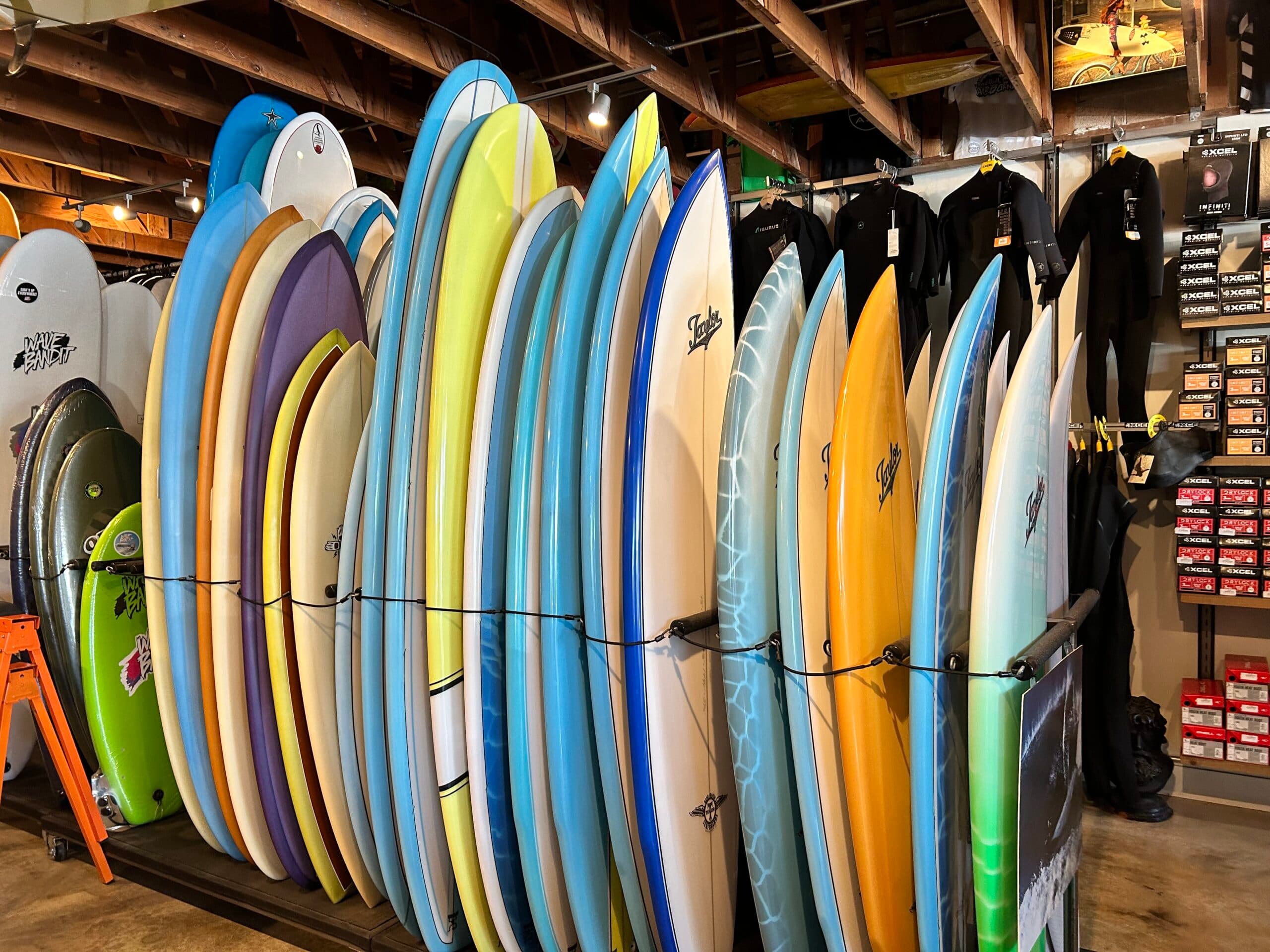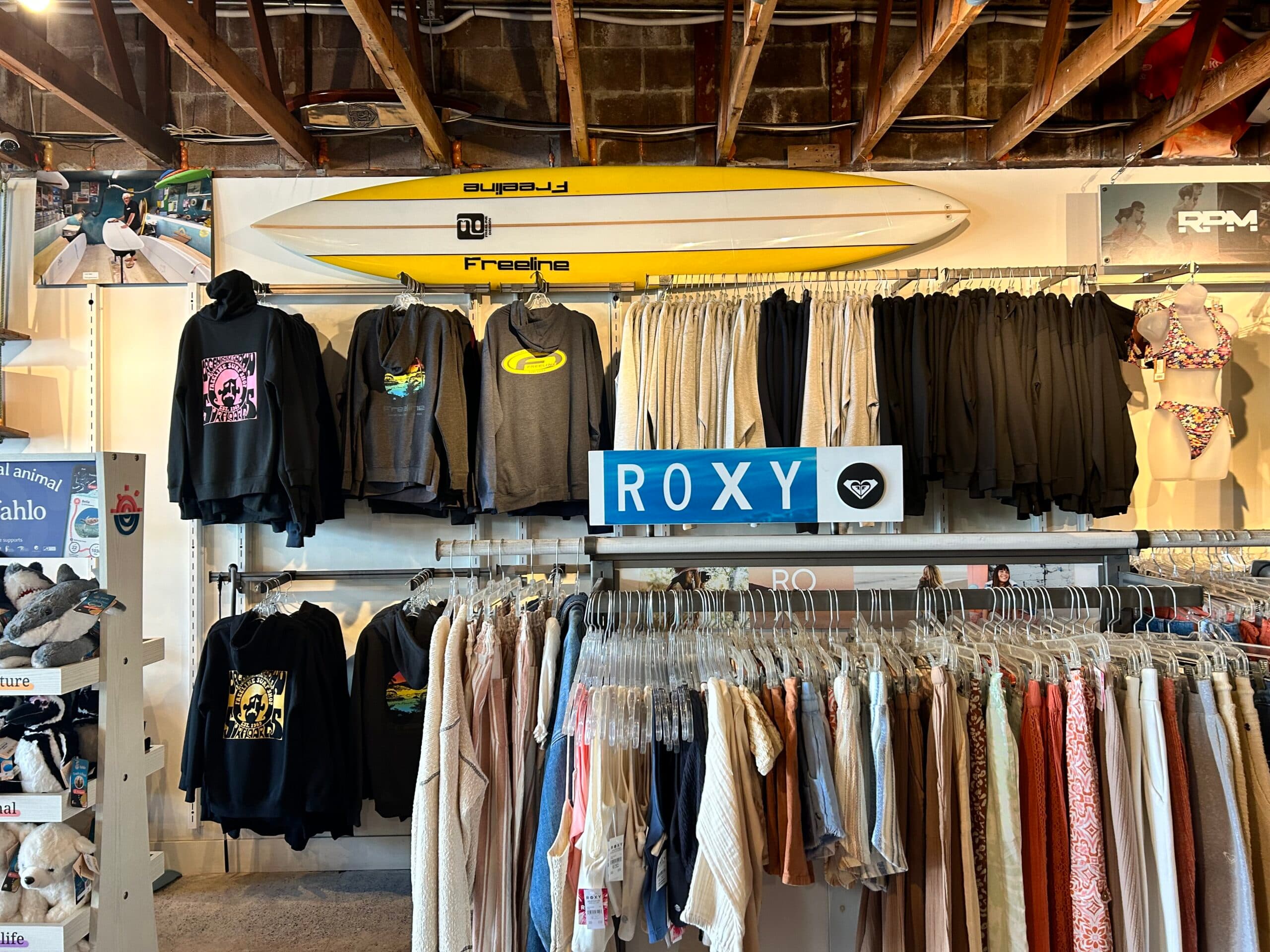Surf shops have always been important components of any surf town worth its salt. Equal parts clubhouse and supply depot, they’ve long served as hubs for local surf populations allowing them to continue the ride, long after stepping out of the sea. Most surf shops began as a means for die-hard surfers to permanently shuck the restraints of traditional labor, opened not only to profit from a community’s collective obsession with riding waves, but to also create an environment focused on surfing, and surfing alone, every day, from Open to Close.
If you surf, you know what a local surf shop is like. It’s a place where you could pop in to buy a bar of wax before a session only to be held hostage for two hours talking about sandbar conditions and fin design with the sales clerk who always sits on a stool back by the used boards who may, or may not, actually work there. Where you could sell that urine-stained wetsuit or water-logged used board on consignment, without having to look into the eyes of the poor schmuck who paid good money for your sullied goods. And, importantly, it’s an important source of local knowledge, a referral base, eager to connect you with any number of local shapers eager to meet over a beer to discuss the dimensions of your next board.
Sadly, as the surf industry grew, the majority of profits at surf shops began to flow out of the community, into the hands of soulless corporate behemoths, bypassing local families and craftsmen. This trend bled much of the magic out of the local surf shop, yet there are still a few “core” shops hanging on without sacrificing their history or their character. Enter Freeline Surf Shop.






